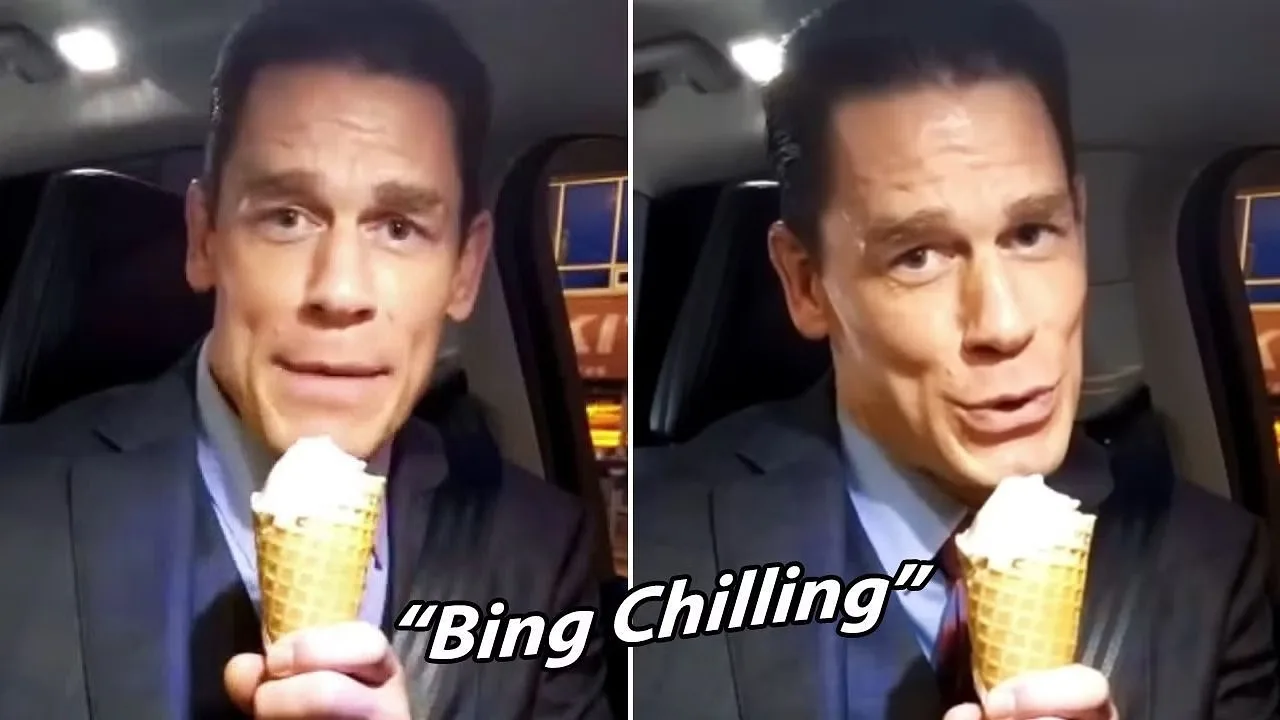The internet, in its infinite wisdom and absurdity, has birthed many a meme. But few have achieved the unexpected virality and cultural impact of “Bing Chilling,” a phrase uttered by none other than professional wrestler and movie star John Cena. This seemingly simple statement, born from a promotional video for the Fast & Furious franchise, transcended its origins to become a global phenomenon, leaving many bewildered and amused. So, how did a man known for his catchphrase “You can’t see me” become synonymous with “ice cream” (or rather, its mispronunciation)? Let’s dive into the bizarre and fascinating story of John Cena and “Bing Chilling.”
The Genesis of a Meme:
It all began in 2021, when Cena appeared in a promotional video for the movie “Fast & Furious 9,” specifically targeting the Chinese market. In the video, Cena, attempting to speak Mandarin, declares, “I like ice cream very much, but Fast & Furious 9 is better than ice cream.” The key moment, however, comes with his pronunciation of “ice cream,” which sounds more like “bing chilling” to English ears. This seemingly minor detail became the spark that ignited the meme machine.
The Meme’s Journey:
The video quickly spread online, with the “bing chilling” portion becoming the focus of amusement and remixes. The phrase was adopted by TikTok users, who created countless parodies and edits, often incorporating Cena’s image into bizarre and humorous scenarios. The meme transcended language barriers, with people from all over the world joining in on the fun, often using “bing chilling” as a nonsensical yet catchy expression.
Beyond the Humor:
While the meme’s humor is undeniable, there’s more to “Bing Chilling” than meets the eye. Some saw it as a lighthearted example of cultural exchange, with Cena’s attempt to speak Mandarin appreciated despite the humorous mispronunciation. Others, however, criticized the meme’s potential to trivialize or mock Chinese culture and language. This debate highlights the complex nature of cultural appropriation and the responsibility creators have when engaging with different languages and cultures.
The Impact of “Bing Chilling”:
Regardless of its interpretation, “Bing Chilling” undeniably left its mark. It became a pop culture touchstone, referenced in music, movies, and even video games. Cena himself embraced the meme, even appearing in a follow-up video where he poked fun at his pronunciation and acknowledged the phenomenon’s reach. The meme’s success speaks to the power of the internet to create unexpected connections and shared experiences, even if they stem from seemingly trivial moments.
The Enduring Legacy:
While meme trends come and go, “Bing Chilling” remains a memorable example of the internet’s unique ability to find humor and meaning in the mundane. It serves as a reminder that even the most unexpected moments can spark global conversations and cultural exchanges. And who knows, maybe the next time you enjoy a refreshing ice cream, you’ll find yourself uttering a playful “Bing Chilling” in homage to the meme that took the internet by storm.
Beyond 1000 Words:
This blog post only scratches the surface of the “Bing Chilling” phenomenon. There are many other aspects to explore, such as:
- The role of social media platforms in amplifying the meme’s reach.
- The use of “Bing Chilling” in marketing and advertising campaigns.
- The potential educational value of the meme in teaching about Chinese language and culture.
- The ethical considerations surrounding the appropriation of cultural elements in memes.
Feel free to explore these topics further and share your own thoughts on the enduring legacy of “John Cena and Bing Chilling.”
